Publications
Articles, publications, books, tools and multimedia features from the U.S. Institute of Peace provide the latest news, analysis, research findings, practitioner guides and reports, all related to the conflict zones and issues that are at the center of the Institute’s work to prevent and reduce violent conflict.
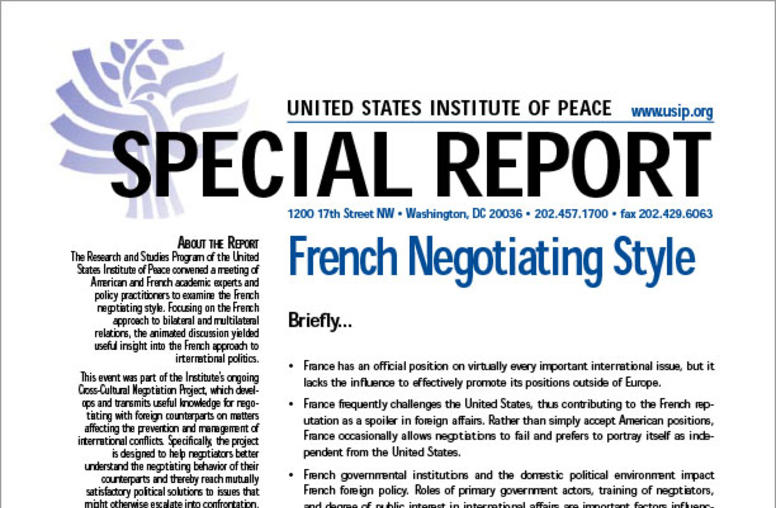
French Negotiating Style
The Research and Studies Program of the United States Institute of Peace convened a meeting of American and French academic experts and policy practitioners to examine the French negotiating style. Focusing on the French approach to bilateral and multilateral relations, the animated discussion yielded useful insight into the French approach to international politics.
Peace Agreements: El Salvador
Peace Agreement (Chapultepec) (01-16-1992) Posted by USIP Library on: April 16, 2001 Source Name: The United Nations and El Salvador 1990-1995, United Nations Blue Books Series, vol. IV. (New York: United Nations, Dept. of Public Information, 1995), 193-230. Source Document Number: U.N. Doc. No. A/46/864-S/23501 Date digitized: March 2, 2001 Chapter 1 Chapter 2 Chapter 3 Chapter 4 ...
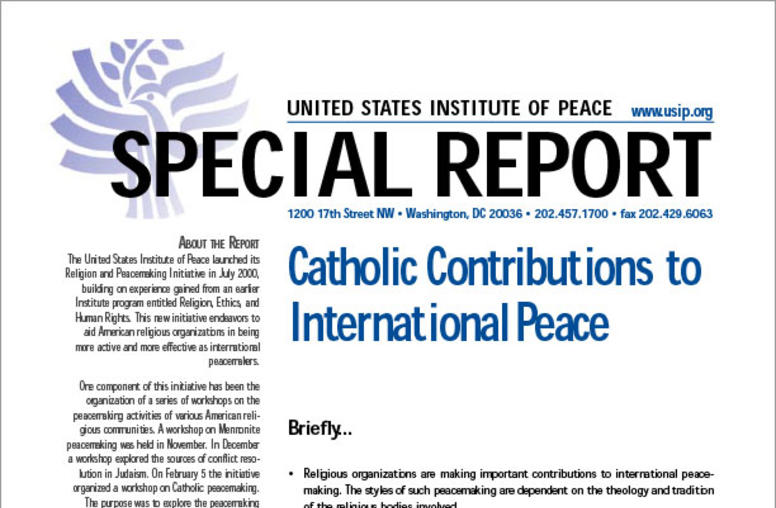
Catholic Contributions to International Peace
The United States Institute of Peace launched its Religion and Peacemaking Initiative in July 2000, building on experience gained from an earlier Institute program entitled Religion, Ethics, and Human Rights. This new initiative endeavors to aid American religious organizations in being more active and more effective as international peacemakers.
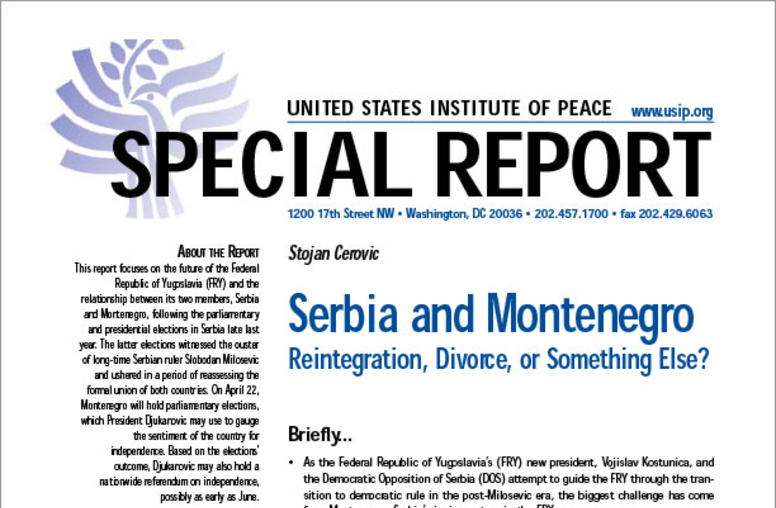
Serbia and Montenegro: Reintegration, Divorce, or Something Else?
As the Federal Republic of Yugoslavia's (FRY) new president, Vojislav Kostunica, and the Democratic Opposition of Serbia (DOS) attempt to guide the FRY through the transition to democratic rule in the post-Milosevic era, the biggest challenge has come from Montenegro, Serbia's junior partner in the FRY.
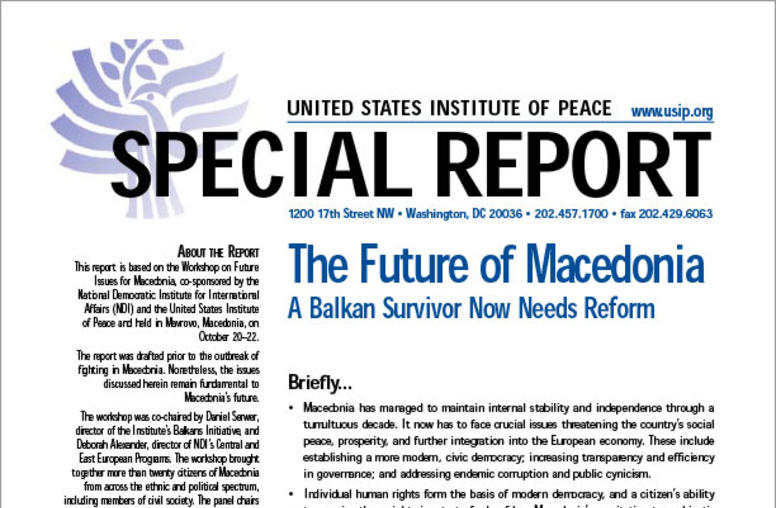
The Future of Macedonia: A Balkan Survivor Now Needs Reform
Macedonia has managed to maintain internal stability and independence through a tumultuous decade. It now has to face crucial issues threatening the country's social peace, prosperity, and further integration into the European economy. These include establishing a more modern, civic democracy; increasing transparency and efficiency in governance; and addressing endemic corruption and public cynicism.
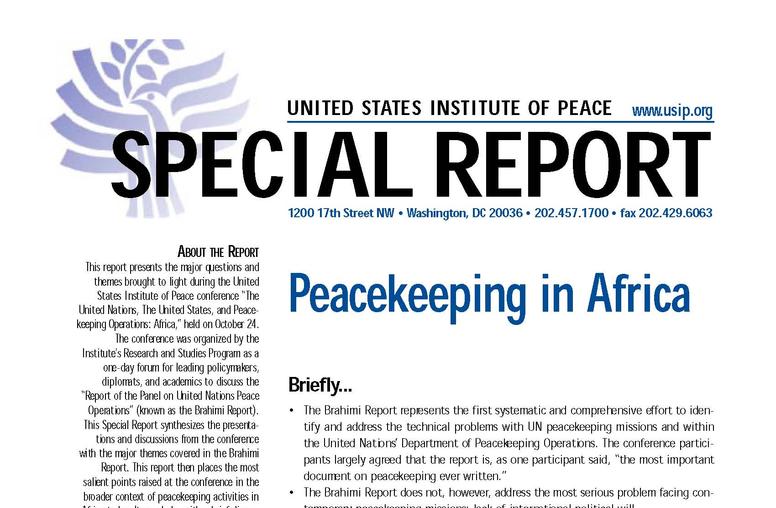
Peacekeeping in Africa
Summary PART ONE The Brahimi Report represents the first systematic and comprehensive effort to identify and address the technical problems with UN peacekeeping missions and within the United Nations' Department of Peacekeeping Operations. The conference participants largely agreed that the report is, as one participant said, "the most important document on peacekeeping ever written." The Brahimi Report does not, however, address the most serious problem facing contemporary peace...
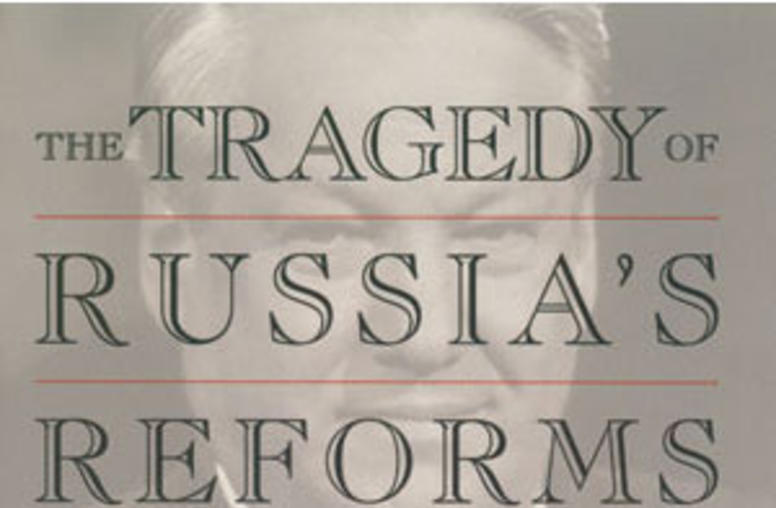
The Tragedy of Russia's Reforms
The Tragedy of Russia’s Reforms presents a boldly original analysis of the collapse of the Soviet Union and the birth of the Russian state. The keys to understanding these events, the authors argue, are the prescriptions of Western “transitologists,” the International Monetary Fund, and advocates of economic “shock therapy.” These prescriptions allowed the nomenklatura and the financial “oligarchs” to acquire Russia’s industrial and natural resources and to heavily influence the country’s pol...
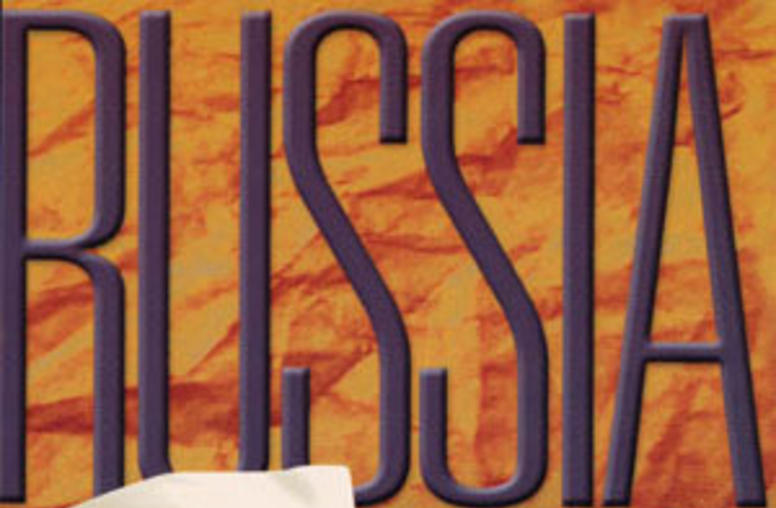
Russia and its New Diasporas
On the morning after the Soviet Union’s collapse, millions of ethnic Russians living on the fringes of the former Russian Republic suddenly awakened to find themselves in foreign countries—newly independent non-Russian successor states that most Russians now refer to as the "near abroad."
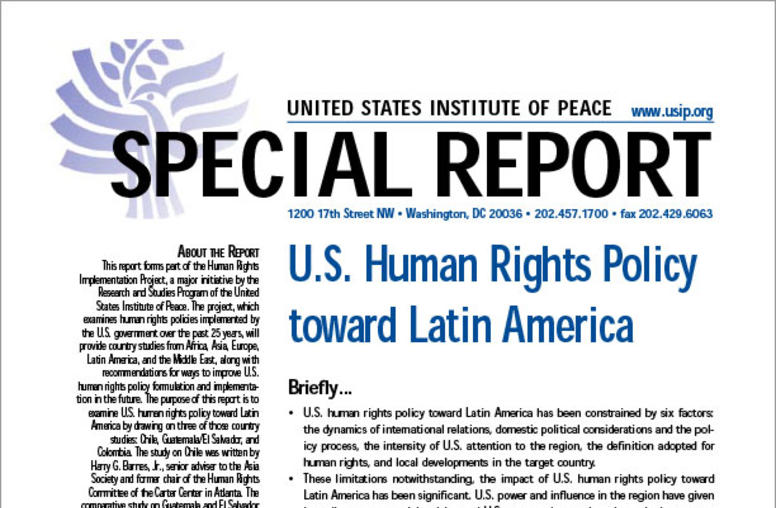
U.S. Human Rights Policy toward Latin America
Summary U.S. human rights policy toward Latin America has been constrained by six factors: the dynamics of international relations, domestic political considerations and the policy process, the intensity of U.S. attention to the region, the definition adopted for human rights, and local developments in the target country.
Truth Commission: Panama
Truth Commission: Panama Truth Commission (Comisión de la Verdad de Panamá) Duration: 2001 - 2004 Charter: Executive Decree No. 2, January 18, 2001 Commissioners: 7 Report: Public report